- - What is a Single Tooth Dental Implant?
- - Who is candidate for single tooth dental implant
- - Types of Single Tooth Dental Implants
- - Material used in the single tooth dental implant?
- - Single Dental Implant Procedure and Timeline:
- - Single Tooth Dental Implant Recovery and Aftercare
- - Benefits of Single Tooth Dental Implant
- - Single Front Tooth Implant
- - Single Tooth Denture vs. Implant
- - Single Tooth Dental Implant Before and After
- - How Much is a Single Implant Tooth?
- - Single Tooth Implant in Turkey
- - Restore Your Missing Tooth at Turkey Luxury Clinics Successfully & Affordably
- - FAQs About Single Dental Tooth Implant
Missing a single tooth can affect not only your smile but also your chewing ability, confidence, and long-term oral health.
A single tooth dental implant is the most reliable solution, offering a permanent, natural-looking replacement that functions just like your real tooth.
From front tooth implants that require high aesthetic precision to durable molar implants designed to handle strong bite forces, this treatment ensures lasting results.
At Turkey Luxury Clinics, we guide you through everything you need to know about single tooth dental implants including benefits, types, materials, procedure, before-and-after results, and costs in the U.S., Turkey, and more. Book your free consultation today and restore your smile with expert care.
What is a Single Tooth Dental Implant?
A single tooth implant is a permanent, natural-looking solution for a missing tooth that restores both function and aesthetics. A single tooth implant consists of a titanium post that acts as the root, a connector piece (abutment), and a custom-made dental crown, providing patients with a prosthetic tooth that looks and feels natural. This treatment offers long-lasting, fixed, and permanent results, helping to maintain oral health, chewing function, and a confident smile.
Who is candidate for single tooth dental implant
A single tooth dental implant is generally suitable for healthy adults who are missing one tooth, have sufficient jawbone density, and maintain good oral hygiene. Ideal candidates for dental implant typically include:
- Healthy gums and jawbone: Patients should have strong gums and enough bone density to support the implant. Those with gum disease or low bone mass may need treatment, such as periodontal therapy or bone grafting, before implant surgery—or may consider alternative tooth restoration options.
- Adults over 18: Implants are recommended for adults whose jaw and teeth have fully developed. They are also suitable for older adults in good oral and general health.
- Controlled medical conditions: Candidates should have no serious uncontrolled chronic illnesses. Conditions such as diabetes, heart disease, or immune disorders must be managed under medical supervision, and patients should inform their dentist about their complete medical history.
- Single tooth replacement need: Best suited for individuals who need to replace one missing tooth for functional or aesthetic reasons.
Types of Single Tooth Dental Implants
The two main types are:
- Endosteal implants: Surgically placed into the jawbone, these are the most common and widely used today.
- Subperiosteal implants: Placed on top of the jawbone under the gums, used rarely when there isn’t enough bone and grafting isn’t an option.
Material used in the single tooth dental implant?
The dental implant is commonly made of titanium alloy, a metal known for being light, strong, durable, and cost-effective. It is the preferred option for most patients, especially for molar tooth replacement, due to its significant strength that suits the functional demands of back teeth and its longevity, which can last 15 to 20 years. It is also, the most affordable implant with cost in the US ranges between $1,500 – $3,500 per implant.
However, rare cases of metal allergy may prevent the use of titanium implants, as hypersensitivity reactions can lead to complications or even implant failure. Another potential downside is its gray color, which may appear as a dark line over the gum, creating an aesthetic concern. These issues can be avoided by choosing a titanium alternative, such as a zirconia implant.
2. Zirconium (Zirconia) Dental Implant:
Zirconia implants are metal-free ceramic implants with natural color, which makes them an attractive cosmetic option single front tooth implant which demands more aesthetic consideration than the molar tooth.
Zirconia is also suitable for patients with metal allergies, as it offers high biocompatibility and is generally considered safer than titanium. The main disadvantages are its higher cost , with price ranges between $1,500 to $3,000, and slightly lower strength and durability compared to titanium, although it remains a reliable option for most dental restorations.
3. Gold Dental Implant:
Gold dental implants, made from a gold alloy, are relatively rare but remain a viable option for patients seeking exceptional strength and durability. Gold is highly biocompatible and resistant to corrosion, making it a long-lasting choice for dental restorations. However, the cost of gold implants is significantly higher than that of titanium or zirconia implants, often ranging from $2,000 to $4,000 per implant, depending on the clinic and location. The main disadvantage is its color, which is metallic and may not be aesthetically suitable for front teeth, making it more suitable for molars where strength is prioritized over appearance.
Single Dental Implant Procedure and Timeline:
This procedure is performed in stages, with the overall timeline typically ranging from a few weeks to several months depending on preparatory needs and healing time.
1. Patient Evaluation (1 Day): The first step involves taking a panoramic X-ray to assess patient qualification, evaluate risks and benefits, and determine whether any pre-dental implant procedures are needed.
2. Additional Procedures (2 Weeks to 6 Months): If required, procedures such as tooth extraction or bone grafting are performed. Tooth extraction usually takes about 2 weeks to heal, while bone grafting can require 3 to 6 months before implant placement.
3. Implant Placement (1–2 Hours): The single dental implant procedure itself is minimally invasive and performed under local anesthesia. It involves making a small incision, placing a titanium root into the jawbone, and closing the incision. A healing period of 3 to 6 months follows to allow for osseointegration.
4. Healing and Osseointegration (3–6 Months): During this period, the implant fuses with the jawbone through a process called osseointegration, creating a stable and strong foundation for the prosthetic tooth. The implant can support a single crown, a bridge, or occasionally a partial denture, depending on the treatment plan.
5.Temporary Crown Placement: In some cases, an optional temporary crown is placed immediately for functional restoration. This approach is known as a same-day dental implant, or immediate implant
6. Crown Impression (1 Day): After the healing period, the dentist takes an impression of the crown, either manually or using modern 3D scanning and printing, for a customized fit. The procedure that uses 3D digital printing is known as 3D dental implant
7. Crown Placement (1–2 Weeks): It generally takes 1 to 2 weeks to fabricate the permanent crown. The dentist then places an abutment and secures the crown over the implant, completing the procedure.
Single Tooth Dental Implant Recovery and Aftercare
Recovery after implant surgery usually takes about 7–10 days for initial healing, while full integration with the jawbone occurs over several months. Good oral care is essential: brush twice daily with a soft-bristle toothbrush, floss at least once a day, and attend regular dental check-ups. Avoiding smoking and very hard foods also helps protect the implant and extend its lifespan.
Benefits of Single Tooth Dental Implant
Single tooth dental implants offer a durable, long-lasting solution for a missing tooth that enhances aesthetics, restores function, and preserves jawbone health.
They provide a natural look and feel, prevent adjacent teeth from shifting, and do not require altering neighboring teeth for support.
Implants are convenient, easy to clean, and can improve oral comfort, chewing ability, and overall confidence.
- Natural look and feel: Closely mimics the appearance and function of a real tooth.
- Bone preservation: Prevents jawbone loss by replacing the tooth root.
- Durability: Long-lasting solution, often lasting 15–20 years or more with proper care.
- Better oral health: Does not affect or rely on neighboring teeth like bridges do.
- Improved function: Restores full chewing ability and clear speech.
- Aesthetic confidence: Especially important for front teeth, ensuring a natural smile.
Single Front Tooth Implant
A single front tooth implant is the most effective solution for restoring a missing front tooth with a custom-made implant that closely replicates the appearance, function, and durability of a natural tooth.
Unlike other tooth replacement options, a dental implant is the only treatment that preserves and protects the natural jawbone, preventing progressive bone loss that can extend to the facial bones and even alter facial shape.
Since the front teeth are highly visible, front tooth implants are crafted with exceptional attention to aesthetics, ensuring a seamless match in shape, size, and color for a natural-looking smile.
Front tooth Dental Implant vs. back tooth dental implant
Front and back tooth dental implants differ significantly in their aesthetic and functional considerations, with front tooth implants requiring higher aesthetic demands due to visibility, potentially higher costs for specialized customization, and often facing more significant bone challenges compared to the back teeth, which experience higher bite forces and need more strength consideration, but pose fewer aesthetic concerns and may have more available bone
Single Tooth Denture vs. Implant
A single-tooth denture (partial denture) is a removable and budget-friendly option for replacing a missing tooth. However, it offers limited stability, can shift during eating or speaking, and is generally considered a temporary solution.
In contrast, a single tooth dental implant is a permanent treatment where a titanium post is surgically placed into the jawbone to support a crown. Implants provide superior stability, preserve jawbone health, look and feel like natural teeth, and deliver long-term value, although the initial cost is higher compared to dentures.
Single Tooth Dental Implant Before and After
How Much is a Single Implant Tooth?
The average cost for a single tooth dental implant can vary widely, starting from around $300 and reaching up to $7,000, depending on the location, whether you have dental insurance, or if you opt for regions offering dental tourism with comprehensive packages.
In the United States, cities like New York City and Boston tend to be on the higher end, with single dental implant prices often ranging from $2,500 to $6,500 or more without insurance. Florida, including areas like Seminole, is slightly more affordable but still generally above $3,000. With dental insurance, patients may cover part of the cost, reducing out-of-pocket expenses, though coverage varies by plan.
On the other hand, countries like Turkey and India provide much more cost-effective options. In Istanbul, Turkey, a single tooth implant typically costs between $300 and $1,000, while in Delhi, India, prices usually fall between $400 and $800.
Even without insurance, dental implants in Turkey offer high-quality care at a fraction of the U.S. cost, thanks to all-inclusive dental implant packages available in most Istanbul clinics.
Other factors influencing the cost of a single tooth implant:
- Implant Material: Titanium implants are generally cheaper than zirconia, with a price difference of around $150 to $300 per implant.
- Implant Brand: Premium brands like Straumann and Nobel Biocare are more expensive than standard options, typically ranging from $1,500 to $3,000 per implant. Some German brands may cost slightly less, around $1,200 to $2,500, while typical Turkish brands are more affordable, often priced between $550 and $1,000 per implant.
- Additional Procedures: Costs can increase if tooth extraction, bone grafting or other preparatory procedures are needed to ensure sufficient bone density.
- For example:
- Tooth extraction: typically $75 – $300 per tooth, depending on complexity.
- Bone grafting can range from $200 to $2,000, depending on the amount of bone needed and the technique used.
- Sinus lift or other advanced procedures: may add $1,000 – $3,000 to the total implant cost.
- The cost of a same-day implant is generally $200–$500 higher than the standard single implant cost, depending on the clinic and the type of crown material used.
Single Tooth Implant in Turkey
Turkey has become a leading destination for dental surgeries, including single-tooth implants, thanks to the combination of high-quality care and cost-effectiveness.
Comprehensive dental implant packages in modern clinics start at around $300 to $400 for a single tooth. Most packages include the implant, abutment, crown, consultations, and X-rays. Some clinics also offer premium packages with added benefits like accommodation, airport transfers, or private nursing, making the treatment experience more convenient for international patients.
Read more about All-Inclusive Dental Implant Packages, Turkey, Best packages, Deals, Prices, 2025.
Restore Your Missing Tooth at Turkey Luxury Clinics Successfully & Affordably
Ready to restore your smile with a single tooth implant? Our trusted dental partners offer affordable, high-quality implant treatments tailored to your needs. Get your single tooth implant in Turkey with expert care at affordable prices. Contact Turkey Luxury Clinics today and book your consultation.

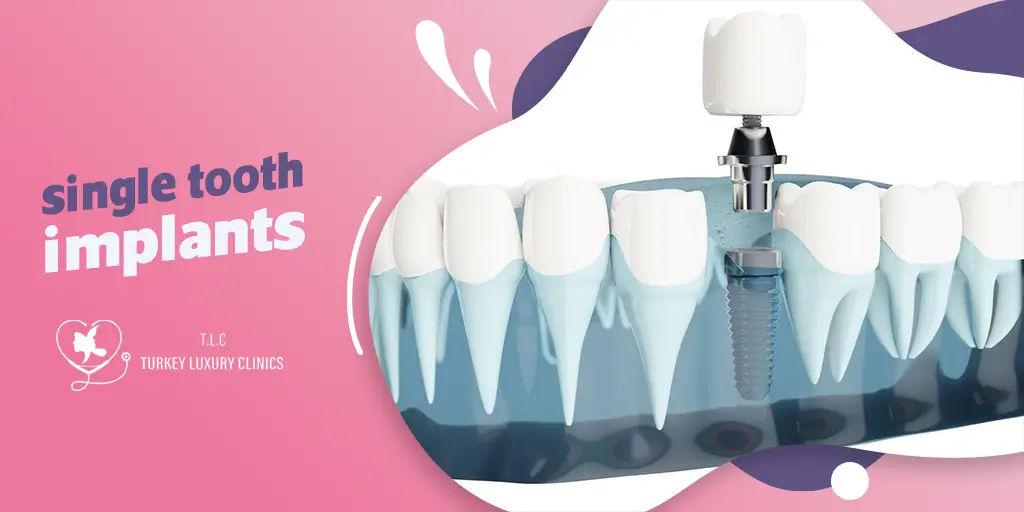



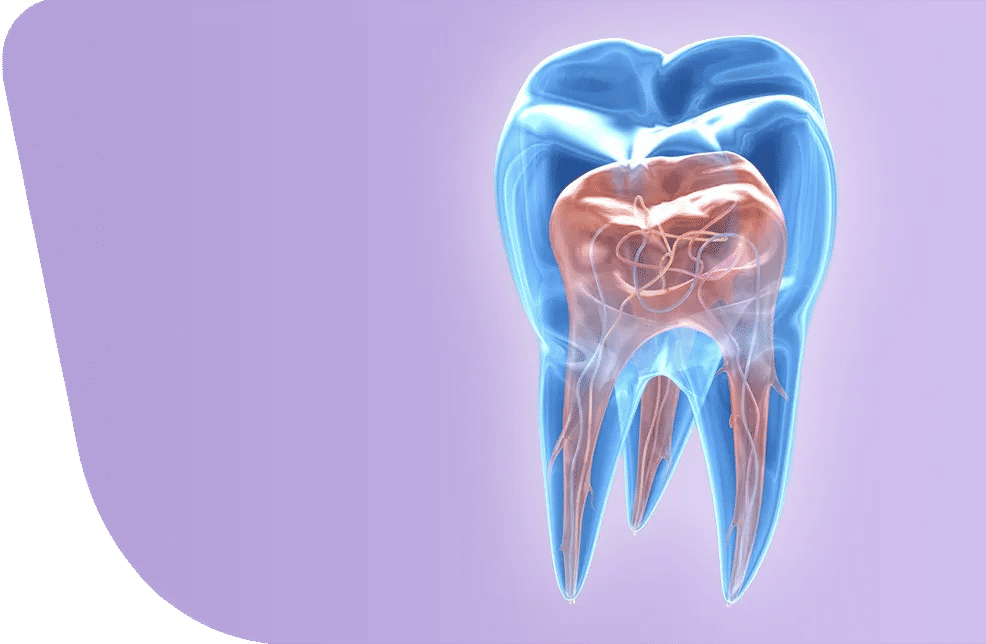
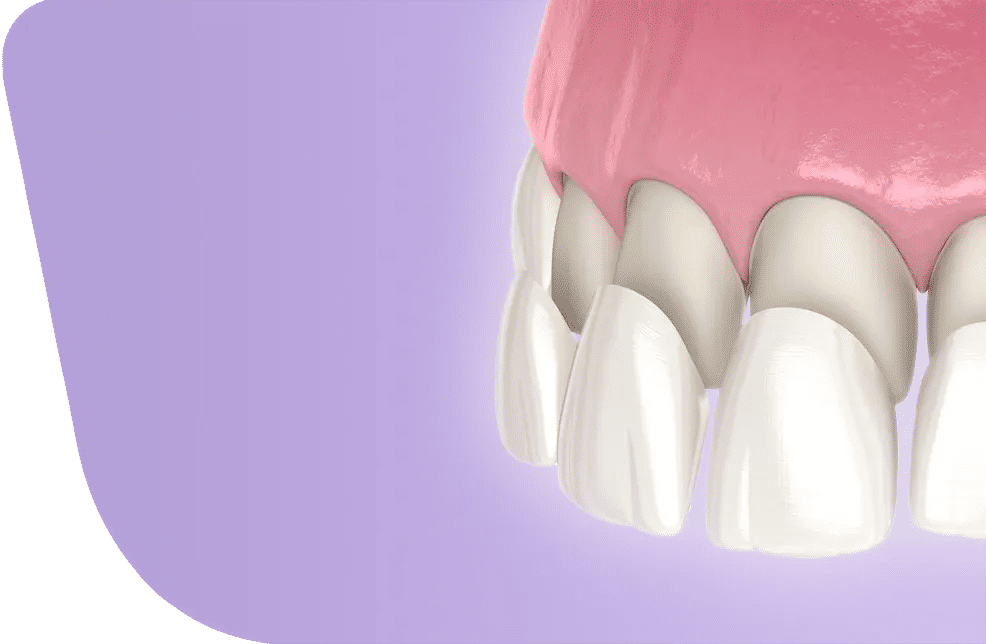

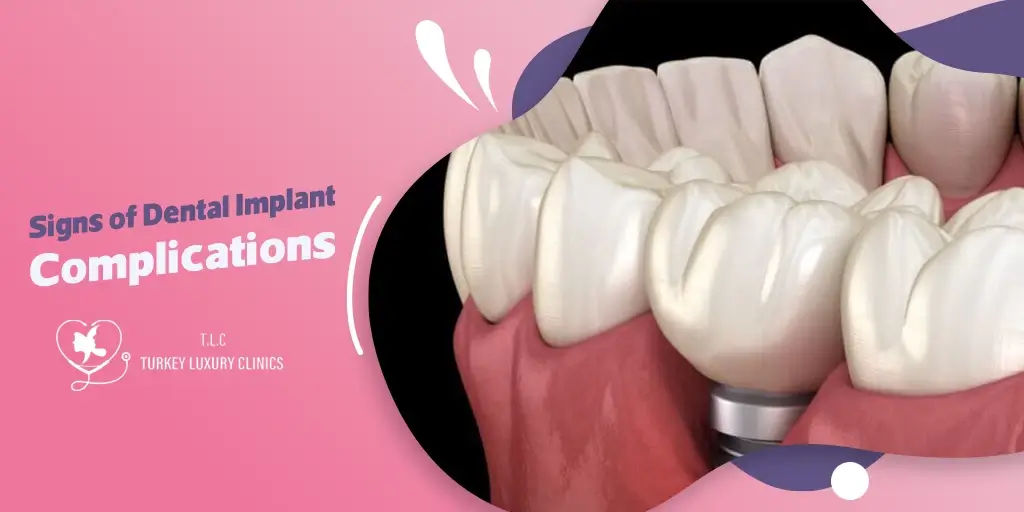

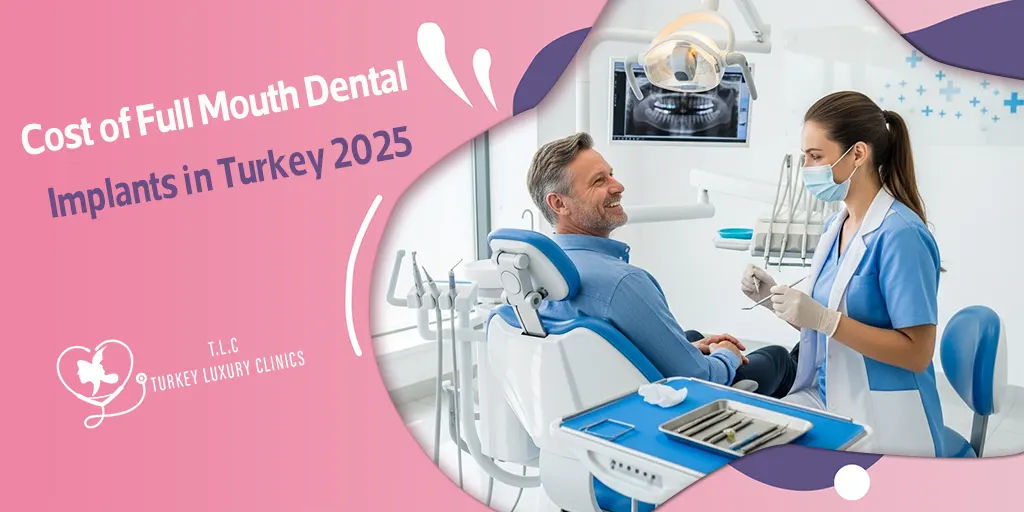



.webp)
.webp)
.webp)
.webp)

